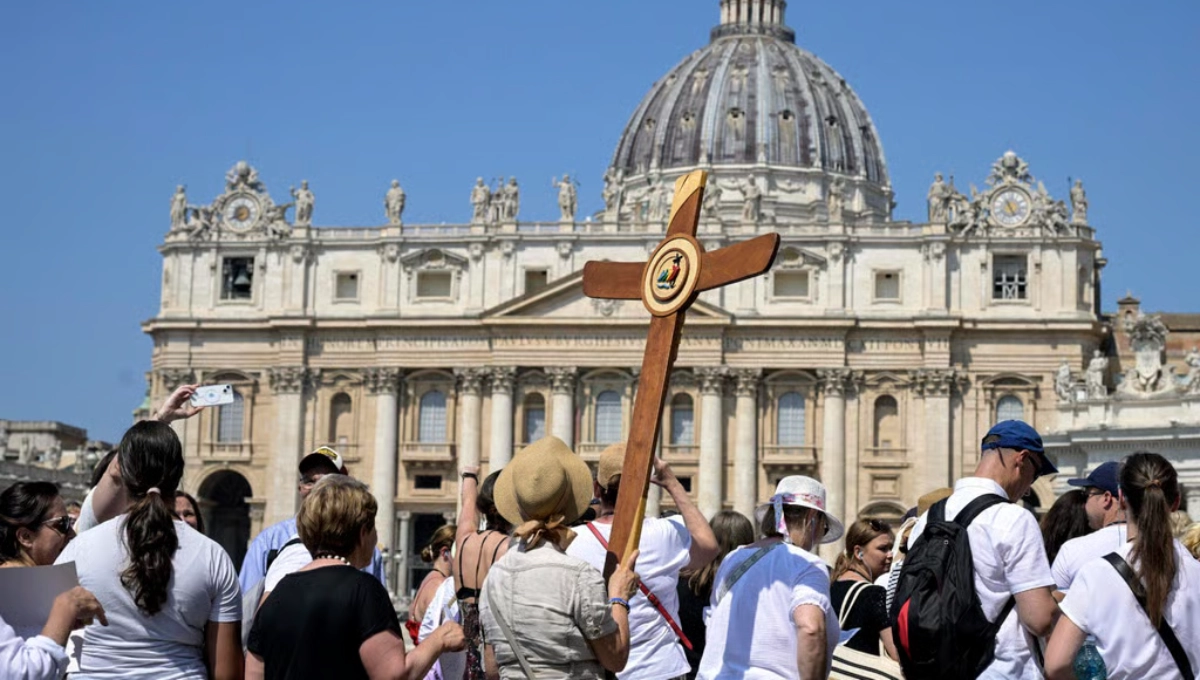The Vatican is currently under intense scrutiny following explosive allegations of money laundering through secretive manipulation of bank transfers. These claims, brought forward by a former top auditor, have stirred renewed concern over the financial practices within the Holy See’s institutions, threatening to undermine ongoing efforts by Pope Leo XIV to restore the reputation of the Catholic Church after decades of financial scandals.
In a report by Politico on August 11, 2025, citing former Vatican chief auditor Libero Milone, the Vatican is accused of using a “money laundering lock” — a covert tool allegedly capable of altering transaction details such as names and account numbers even after bank transfers were completed. This capability would, according to the accusations, allow Vatican officials to disguise the real origins and destinations of funds, effectively enabling unlimited money laundering and evading basic anti-fraud safeguards.
Milone asserts that this tool was discovered during his investigations into possible fiscal misconduct after a request from Cardinal George Pell, who himself had warned of potential illegality surrounding changes to the SWIFT banking system controls. Milone further claims to possess documented evidence showing these alterations could be made “at any time,” though he has refrained from publicly releasing this information, citing concerns over misinterpretation or accusations of blackmail.
The allegations arrive at a sensitive moment for Pope Leo XIV’s administration, which has been pushing reforms aimed at enhancing financial transparency and accountability within the Vatican. The Church has been wrestling with a legacy of high-profile banking scandals, from the infamous Vatican Bank scandals of the 1980s and 1990s involving illicit funds and criminal groups, to more recent prosecutions such as that of Cardinal Giovanni Angelo Becciu, convicted in 2023 for misusing Church funds and corrupt property deals.
The Vatican’s response to the latest accusations has been a firm denial. Spokesperson Matteo Bruni labeled the claims as “completely unfounded” and stressed that the Vatican’s financial offices, including APSA (Administration of the Patrimony of the Apostolic See), have undergone multiple audits since 2020, both internal and by external agencies such as PricewaterhouseCoopers, with no irregularities uncovered.
Additional context is provided by ongoing efforts from European financial watchdogs. The Council of Europe’s Moneyval has repeatedly called on the Vatican to produce concrete results in its fight against money laundering. While praising improvements like the closure of nearly 5,000 suspicious accounts and the freezing of approximately €11 million tied to money laundering investigations, Moneyval notes a lack of prosecutions or convictions so far. The watchdog has urged Vatican authorities to empower law enforcement bodies, such as its gendarmerie and prosecutor’s office, to conduct more proactive financial investigations capable of generating successful legal outcomes.
Reflecting on the Vatican Bank’s turbulent history places the current accusations in a broader perspective. The Institute for the Works of Religion (IOR), commonly known as the Vatican Bank, has long been criticized for weak controls and alleged involvement in illicit financial activities. Despite attempts at reform under previous popes, including Pope Benedict XVI’s creation of oversight mechanisms and Pope Francis’s commissioning of senior cardinals to clean up the institution, controversies have persisted. Notably, in 2013, top bank officials resigned amid investigations into corruption and money laundering involving senior Vatican personnel.
Further highlighting the challenges the Vatican faces, a recent internal report noted a one-third decline in suspicious financial activity reports within the city-state for 2024, alongside the freezing of two bank accounts holding over 2 million euros and the halting of three suspicious transactions worth more than 1 million euros. This suggests some progress in anti-money laundering efforts, though the report also confirmed that only a fraction of cases were forwarded for prosecution and none have yet resulted in indictments, underscoring the ongoing difficulty in turning investigations into convictions.
Historically, the Vatican has grappled with leaks and internal struggles over financial transparency. The 2012 Vatican leaks scandal revealed corruption, power struggles, and defamation campaigns within Vatican finances, contributing to the Church’s challenging path toward reform. Confidential documents exposed by journalists laid bare attempts to suppress financial misconduct whistleblowing and compromises in contract management.
The gravity of the recent money laundering allegations has significant implications. Beyond legal consequences, they risk eroding trust among the global Catholic community and donors, at a time when financial stability is critical for the Vatican. The Church’s leadership faces the dual task of responding transparently to these accusations and accelerating reforms to prevent recurrence of such controversies.
In summary, the Vatican stands accused of employing illicit financial tools to obscure the origins and destinations of funds, potentially facilitating large-scale money laundering through the manipulation of bank transfers — a charge strongly denied by Vatican officials who point to ongoing audits and reforms. While past scandals and regulatory pressures paint a picture of systemic challenges within the Holy See’s finances, the current administration under Pope Leo XIV seeks to restore credibility with improved oversight and accountability measures. However, the lack of prosecutions arising from numerous investigations remains a critical hurdle in demonstrating genuine reform. The evolving situation demands close observation as the Vatican responds to one of its most serious financial allegations in recent years.


